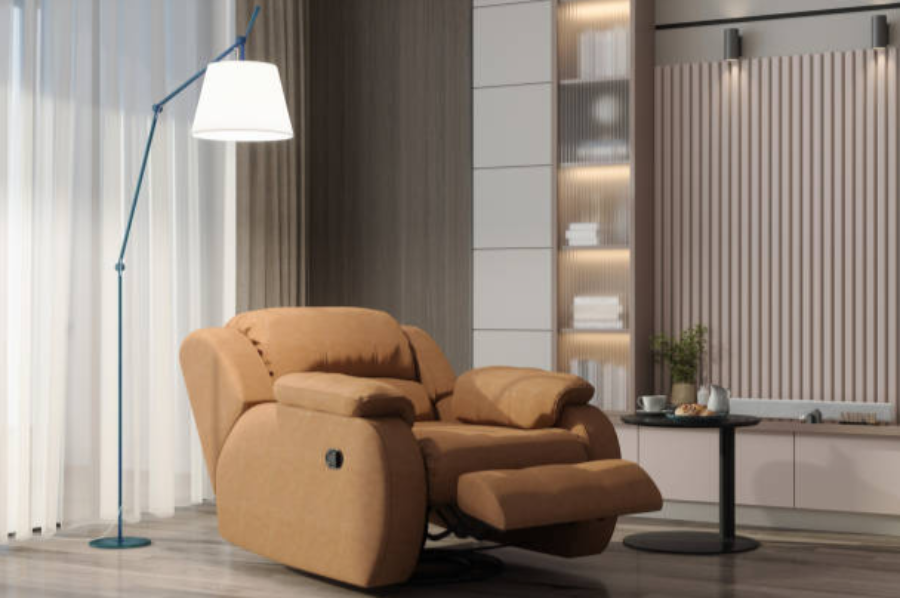How Do Recliner Chairs Help in Reducing Back and Joint Pain?
Recliner chairs are increasingly recognized for their potential to alleviate back and joint pain, making them a popular choice for individuals seeking comfort and relief. The design of these chairs supports the body in a way that can help reduce strain on the spine and joints, providing a range of benefits for those who suffer from chronic pain or discomfort. Here’s an exploration of how recliner chairs can contribute to pain relief.
1. Ergonomic Support
One of the key features of recliner chairs is their ergonomic design, which plays a vital role in providing support and promoting proper posture.
– Lumbar Support: Many recliner chairs come with built-in lumbar support that helps maintain the natural curve of the spine. This support is essential for reducing lower back pain, as it prevents slouching and encourages proper alignment while sitting.
– Customizable Reclining Positions: Recliner chairs often offer adjustable backrests, allowing users to find the most comfortable position for their needs. By reclining to a specific angle, individuals can relieve pressure on the spine and distribute body weight more evenly, which can help alleviate discomfort.
2. Reduced Pressure on Joints
Reclining can significantly reduce pressure on the joints, which is particularly beneficial for individuals suffering from conditions like arthritis.
– Leg Elevation: Many recliner chairs allow users to elevate their legs, which can reduce swelling and discomfort in the lower extremities. Elevating the legs also helps alleviate pressure on the knees and hips, which can be especially helpful for those with joint pain.
– Gentle Movement: Some recliner chairs come equipped with features that provide gentle rocking or massage functions. These movements can promote circulation and help relax tight muscles, further easing joint discomfort.
3. Improved Circulation
Good circulation is crucial for overall health, especially for individuals with chronic pain conditions.
– Promoting Blood Flow: Sitting in a reclined position can improve blood flow to the extremities. When the legs are elevated, it helps return blood to the heart more efficiently, reducing the risk of blood pooling in the lower limbs. Improved circulation can aid in pain relief and promote faster healing for inflamed or sore joints.
– Reduction of Nerve Compression: By adjusting the recline and elevation of the chair, individuals can find positions that reduce pressure on nerves in the back and legs. This can help alleviate pain associated with nerve compression conditions, such as sciatica.
4. Enhanced Relaxation
The psychological aspect of pain management is often overlooked, but relaxation can play a significant role in reducing discomfort.
– Stress Relief: Reclining in a comfortable chair promotes relaxation, which can lower cortisol levels—the hormone associated with stress. High stress levels can exacerbate pain, so creating a calm environment can lead to improved pain management.
– Comfortable Positioning: Recliner chairs allow individuals to settle into a comfortable position that reduces tension. This comfort can help diminish the perception of pain, making it easier to relax and enjoy leisure activities.
5. Easier Mobility
For those with limited mobility, getting in and out of a recliner chair can be easier than using a traditional chair.
– Power Lift Features: Many modern recliners include power lift options that assist users in transitioning from sitting to standing. This feature is particularly beneficial for individuals with back and joint pain, as it reduces the strain on muscles and joints during the standing process.
– Accessibility: The design of recliner chairs often accommodates users with varying degrees of mobility. A chair that provides easy access can encourage individuals to sit and rest without the fear of exacerbating their pain.
6. Therapeutic Benefits
Some recliner chairs come with additional therapeutic features designed to enhance pain relief.
– Heat and Massage Functions: Recliners equipped with heat and massage functions can provide soothing relief for sore muscles and joints. Heat therapy can help relax tight muscles and improve blood flow, while massage can alleviate muscle tension and promote overall relaxation.
– Customizable Settings: Many recliner chairs allow users to customize the intensity and location of massage, providing targeted relief to specific areas of discomfort. This personalization can enhance the effectiveness of the chair in addressing individual pain points.
7. Encouraging Movement and Activity
While recliner chairs are primarily designed for relaxation, they can also encourage gentle movement, which is crucial for managing pain.
– Frequent Position Changes: Reclining chairs enable users to change positions easily. This flexibility encourages individuals to shift their posture regularly, which can prevent stiffness and maintain joint mobility.
– Facilitating Light Activity: By having a comfortable place to sit, individuals may be more inclined to engage in light activities such as reading, crafting, or watching television. Staying active, even in small ways, can contribute to overall well-being and pain management.
Conclusion
Recliner chairs offer a multitude of benefits for individuals suffering from back and joint pain. Their ergonomic support, ability to reduce pressure on joints, and improvement of circulation can significantly enhance comfort and alleviate discomfort. Additionally, the psychological benefits of relaxation and the ease of mobility provided by power lift features make recliner chairs a valuable tool for pain management.
Whether it’s the customizable reclining positions, heat and massage functionalities, or simply the comfort of a well-designed chair, recliner chairs can be an essential part of a comprehensive strategy for managing pain and improving overall quality of life. For those seeking relief from chronic pain, investing in a high-quality recliner chair can be a transformative choice, leading to greater comfort and a more enjoyable daily experience.












